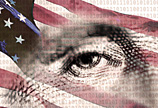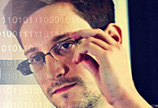Spying on millions of Americans in the 'United States of Secrets'
Updated: 2014-05-15 09:07
(Agencies)
|
|||||||||
FRONTLINE documentary reveals US domestic surveillance program's birth, evolution in secrecy
 |
| More about US surveillance program |
|
 |
| Snowden leaks US surveillance program |
"You have an agency that was created to prevent something like 9/11 - they are not allowed to turn their eyes and ears on America. But of course, the attack came from al-Qaida operatives who had been living inside America," said Michael Kirk, producer, director and writer of a new FRONTLINE documentary, "United States of Secrets," premiering tonight on PBS at 9 pm and previewed exclusively on Yahoo News.
The remedy, as we now know, was to turn an agency with a strict legal mandate to look outward at the activities of foreign governments inward, toward its own. "So the government was faced with a question: What do they have to do to walk right up to the edge of what's legal and right to protect the rest of the country?," Kirk, whose other film credits include the Peabody award-winning "League of Denial" and "Bush's War," told Yahoo News in a telephone interview.
Part 1 of "United States of Secrets," a two-hour film, examines the beginnings of "The Program," or "Stellar Wind" as it was known internally: The effort to collect unprecedented amounts of information from emails, phone and cell conversations from millions of Americans - through its continuation today, surviving a change in presidents, threats of resignations by high-level government officials and exposure by Edward Snowden, who took a job at intelligence contractor Booz Allen Hamilton to specifically reveal it.
Though the film begins with Snowden's efforts to interest former Guardian journalist Glenn Greenwald, documentary film producer Laura Poitras and journalist Barton Gellman with what he found, Part 1 is less about Snowden and more about how many members of the NSA, the US Justice Department and other government officials acted on their various beliefs in what was right, and wrong.
The film depicts how "The Program" started in then-Vice President Dick Cheney's office, in the form of a document authored by David Addington, Cheney's lawyer, and kept in Addington's safe. "To most people who know how things work inside the government, that the vice-president's lawyer, who has no statutory authority, [would author] what would become the deepest, darkest secret the American government has" is not only unusual, but unique in the history of US intelligence, said Kirk. Its heritage caused intense and acute legal debate from the beginning.
Still, the NSA, asked after the 9/11 attacks to create a list of exactly what it would take to prevent anything like them from happening again, was receptive to the challenge. Michael Hayden, a retired four-star US Air Force general and head of the agency from 1999 to 2005, took it on.
Starting up "The Program" required compartmentalizing it from a substantial part of NSA staff, and, of course, Congress. All kinds of equipment began appearing in the agency's Fort Meade, Md., headquarters, to the surprise of many who worked there. In fact, though, the agency already had a program called "Thinthread" that could be configured to do the job, but its creators included safeguards that would render the data more or less anonymous, protecting the privacy of the newly monitored.
But when the NSA decided to remove those protections, the longtime agency code writers behind it - one of whom breaks into tears on camera at the thought that 9/11 might have been prevented had Thinthread been properly used - decided to quickly retire. Their supervisor, Thomas Drake, who had joined the agency on the day of the 9/11 attacks, first unearthed the internal "skunkworks" that created Thinthread. But NSA executives wound up rejecting it and rebuffing Drake when he questioned the legality of "The Program" to his superiors. They assured him "The Program" was legal, and told him, "Don't ask any more questions, Mr. Drake." He eventually lost his job and pension at the NSA after talking to a reporter about waste and fraud at the agency, and as of summer 2013 was selling equipment in an Apple store.
- Guard secrets against spy Net
- Reports of NSA spying win Pulitzer for public service
- Post, Guardian win Pulitzers for NSA revelations
- Spy agencies entice Chinese students
- US spying on Huawei an undeclared invasion
- Obama unveils plan to end NSA's bulk collection
- Obama to propose ending NSA's phone call sweep
- Obama to propose curbing NSA data-gathering
- Report: NSA targeted Chinese tech giant Huawei
- Xinjiang publishes anti-terror brochures
- Security pact sealed with Afghanistan
- President Xi encourages international cultural exchanges
- Premier Li: China willing to help Afghan infrastructure
- Chinese FM: China, Asia-Pacific become community of shared destiny
- Foreign minister remarks on possibility of China-Japan summit
Most Viewed
Editor's Picks

|

|

|

|

|

|
Today's Top News
VW defends safety of recalled New Sagitar
Former premier makes Hurun philanthropists list
Xinjiang publishes anti-terror brochures
SOHO endows $10m to Yale
Cook and Ma talk about partnership
Language a barrier to healthcare for Asian Americans
China businesses need innovation: VC
Security pact sealed with Afghanistan
US Weekly

|

|
















